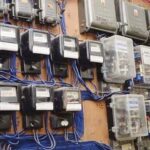By Isaac Atunlute
In northwestern Nigeria, thousands of people have been displaced by years of violent attacks, often left without homes, education, and access to basic services.
In Kaduna, for example, years of ethno-religious conflicts have not only resulted in the loss of 20,000 lives since 1980 and hundreds of thousands of permanent disabilities; homes, farmlands, and other properties worth billions have been razed.
After many years of neglect, Kaduna State is now using a coordinated public-private effort to reverse the narrative.
Not just through shelter, but by integrating education, healthcare, and economic support for a sustained, long-term rebuild.
The first stage of the new resettlement project has given hundreds of conflict-affected families permanent housing, a school, a health center, and access to economic support tools such as cargo bikes, tricycles, and vocational kits.
The policy aims to achieve long-term rehabilitation, stability, and sustainability. Implemented through a partnership with Qatar Charity, it holds the belief that resettlement must go beyond physical infrastructures.
While the school provides free education for the children of displaced families, the health clinic offers regular medical examinations
The project also provides empowerment tools to support livelihoods among widows, youth, and other vulnerable groups.
This approach is also taking hold elsewhere in Nigeria. In Borno State, ravaged by years of insurgency, the government, with the help of developmental partners, has resettled more than 3,000 internally displaced persons, or IDPs, into 500 newly constructed mass housing units in Dara Jamal community, Bama Local Government Area.
Also seen in Benue, where dozens of farming communities have been repeatedly invaded by killer herdsmen, a community-based return program offers support for returning families in addition to agronomic support.
Similarly, in Zamfara State, kept in fear by terrorists and bandits, the government introduced small-scale shelter clusters to IDPs that integrate access to clean water and education, with boreholes and school tents installed alongside housing.
What these initiatives suggest is a growing recognition that rebuilding after conflict requires more than roofing sheets and cement. Shelter without sustainable income, water, and education can potentially introduce new risks or prolong displacement.
But when shelter is delivered with dignity-enhancing services, then shelter can itself be the springboard for rebuilding community life.
However, such programs face challenges—land disputes, inconsistent funding, and gaps in local consultation have stalled or undermined similar efforts in the past.
But the integrated resettlement project in Kaduna is still the exception. In other war-torn areas, displaced families spend years in temporary camps with no prospect of regular livelihoods or decent education.
The absence of a national framework means that progress depends heavily on who is in office, which donors are involved, or whether communities themselves push for inclusion.
There is also the issue of land—a consistent fault line of resettlement. In some cases, new houses remain vacant for months due to unresolved disputes over ownership.
Strategies that have worked align with the real priorities of displaced families, such as access to water, education for children, and tools to resume farming, rather than focusing solely on infrastructure.
The crisis of displacement in Nigeria remains massive. The country accounts for approximately 3% (about 3,690,000) of the estimated 123 million internally displaced persons (IDPs) globally, according to the United Nations High Commission for Refugees.
While large-scale security solutions remain crucial, localized efforts for rebuilding offer the clearest path forward.
Northwestern Nigeria has faced years of violent attacks, leading to displacement and a lack of basic services for thousands.
In Kaduna, persistent ethno-religious conflicts have cost 20,000 lives since 1980, resulting in loss of property and livelihoods. To reverse this, Kaduna State, in partnership with Qatar Charity, has initiated a comprehensive public-private resettlement project.
This includes permanent housing, education, healthcare, and economic tools such as cargo bikes and vocational kits, aiming for sustainable development and rebuilding community life.
Additionally, similar initiatives are underway in Borno, Benue, and Zamfara States, each tailoring support to local needs by providing housing, water, and educational access.
Despite positive strides, consistent challenges such as land disputes, inconsistent funding, and lack of a national framework impede progress.
These initiatives emphasize that rebuilding requires a holistic approach beyond physical infrastructure to address the priorities of displaced families effectively.
With 3% of the global internally displaced persons (IDPs) being Nigerians, amounting to approximately 3.69 million, localized rebuilding efforts prove crucial despite the need for large-scale security solutions.
Such community-based strategies, aligning with the real needs of displaced individuals, offer a promising path forward amid Nigeria's significant displacement crisis.






